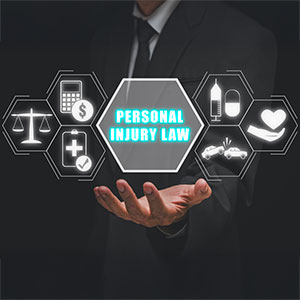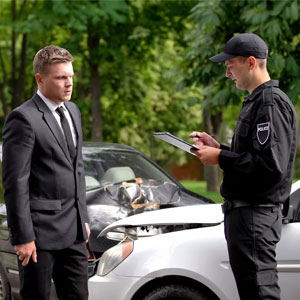How Do I Get the Insurance Company to Fix My Car?
Getting Your Car Repaired Or Replaced After An Accident
The first thing that you should do to get your car repaired after an accident is see if you have collision coverage on your own policy. Your own collision coverage is usually the quickest way to get your vehicle repaired (but is likely subject to a deductible). If you do not have collision coverage, then you may have to wait for the other person’s insurance company to accept liability for the accident. If the other person’s insurance company does not accept liability for the accident, then you will likely have to file a lawsuit and fight.
I have Collision Coverage On My Auto Policy
If you are covered for collision on your auto policy, then you need to decide whether to go through your insurance company or the other driver’s insurance company. If the other driver’s insurance company accepts fault for the accident, then usually going through them is the way to go because they will authorize the repairs and provide you with a rental for your loss of use during the repair. If the other driver denies liability, then it is usually easier to go through your insurance company for the repair and then get the collision deductible back from the other insurance company later.
What Happens If I Did Not Have Collision Coverage On My Policy?
If you don’t have collision, then you are at the mercy of the other person’s insurance company to accept liability and agree to pay for repairs. If they deny liability or there is comparative fault (the accident was partially your fault), then you may have to sue to get your vehicle repaired.
What Happens If My Car Is A Total Loss?
Whether your car is a total loss is a financial decision made by an insurance company. Your car is a total loss if it costs more to repair the vehicle than it is worth. Additionally, there are certain types of damage that will render the vehicle unrepairable such as frame damage. If your car is a total loss, then the insurance company will pay “fair market value” plus sales tax and a tag transfer fee.
“Fair market value” is determined from the “book value” of your vehicle rather than what you paid or how much you owe on it. Insurance companies all use a company called “CCC” (for Certified Collateral Corporation) to value vehicles that essentially places all vehicles on the road at trade-in value because it is a company run for insurance companies and by insurance companies.
You can sometimes negotiate a little more for your vehicle if it was in exceptional condition, had new tires, or had expensive accessories (those will be valued at garage sale value) installed that you can prove. If your car is a total loss, then you should remove the license plate and any valuables that you have in the vehicle as soon as you can. You should also release the vehicle over to the insurance company sooner rather than later to mitigate higher towing and storage fees but you should not sign a property damage (or a release for injuries or a “general release”) until you have worked out all the terms of a settlement.
How Can I Get A Rental Car After An Accident?
There are two ways to get a rental after an accident. First, if you have rental coverage on your own auto policy, then your insurance company will provide you with a rental up to the daily limit in your policy. The other way to get a rental is to have the other driver’s insurance company approve the rental before you go to rent one. They will usually only do this when they have admitted liability on behalf of the driver who caused the accident. In cases of comparative fault, the insurance company may only approve a portion of the rental cost.
My Car Had A Loan, Are They Going To My Car Off In Full?
If your car had a loan on it, there is good chance that you have very little or no equity in the vehicle. Almost all vehicle loans are structured this way. This unfortunately means that you will not get any money out of the vehicle with a loan on it if it is a total loss.
If you have a loan on your car, then you usually want the insurance company to repair it if possible. If you owe more than your car is worth, then you need GAP coverage which is discussed below. Regardless of any equity, if you have a loan on your vehicle and it was a total loss, then you should contact the lender immediately to make them aware of the accident. Your lender will typically deal with either your collision carrier or the other person’s insurance company directly.
What is GAP Coverage and Do I Have It On My Policy?
Most lenders will require you to carry GAP coverage so long as you have a loan on your vehicle. GAP, despite the acronym and its function, stands for “guaranteed asset protection.” This coverage guarantees that the bank does not lose in the event that your car is a total loss. This coverage protects the bank more than it protects you.
The only thing GAP does for you is bring you back to zero. In the event of a total loss, GAP coverage pays for the “gap” between the fair market value of the vehicle and the loan payoff amount. If your car is a total loss in an accident, you should contact the lender and the GAP carrier (if different than the lender) to inform them of the loss. They will typically negotiate on their own.
If you had an outstanding loan balance on a car that you traded and rolled that loan into a new car loan in a trade-in, then your payoff amount may be greater than what GAP will pay. Many GAP carriers will only pay up to 150% of the car’s actual value (which is always low).
If Your Car Was Repaired, Ask For Diminished Value
Diminished value is the difference in value between a car that has never been involved in an accident and one that has for resale value. Clearly, people are willing to pay more for a car that has a clean CARFAX history with no accidents. Newer cars suffer more in diminished value than older cars.
If you car was very new, then an accident makes it much harder to sell and worth less on a trade in. Oftentimes, the diminished value on a new vehicle is several thousand dollars whereas the diminished value on a 15-year-old car with 200,000 miles is essentially nothing. Regardless, it never hurts to ask for diminished value.
Call Us For Help With Your Claim
If you are having difficulty dealing with the insurance company yourself, give a Lakeland car accident attorney a call to discuss your case. We do not charge anything to evaluate your case. If we think that we can help you, then we will get involved in your case on a contingency fee basis. This means that you owe nothing unless money is recovered for you.
We serve clients with car accident cases in Polk County including Lakeland, Winter Haven, Bartow, and Haines City, Florida.


